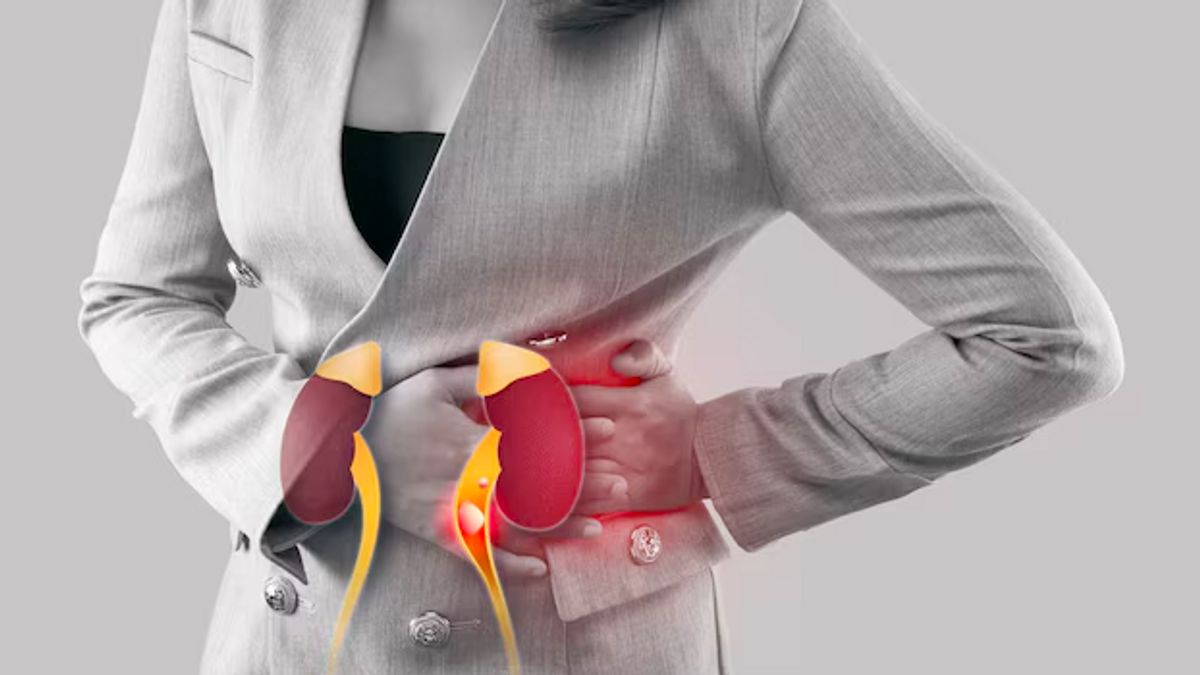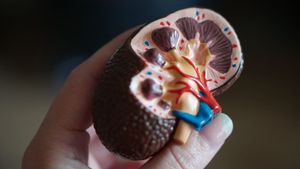JAKARTA - Kidney stones are often associated with drinking less habits. However, the cause is not only that, this problem can also be influenced by several other things.
Kidney rock is a disease characterized by the formation of mineral crystals and chemical compounds in urine. Urine itself contains various chemical and mineral compounds, such as calcium or oxalic acid.
When the urine concentration is very thick, the chemical compounds contained in it will be easier to bind and form a kidney stone crystal. So what are the causes and symptoms of kidney stone disease?
dr. Alberth Ivan Parasian Sp.U, an urologist specialist at Eka Hospital Permata Hijau, said the cause of kidney stone disease. He said the cause of kidney stones is crystallization of chemical compounds in urine. If the content is too much in urine, rocks can be formed.
"One of the causes of kidney stones is the high level of calcium in urine," said dr. Alberth, when met in the Gambir area, Central Jakarta on Tuesday, November 26, 2024.
"A lot of eating salt will reduce the reabsorption of calcium (re-absorption) from urine, causing high calcium levels in urine," he continued.
dr. Alberth Ivan mentions several types of chemical compounds that can lead to the formation of kidney stones, namely:
- Calcium oxalat and calcium phosphate due to lack of drink
This type of kidney stone is more at high risk for people who eat high foods of oxalate or low calcium and lack of drink. This is the most common type of kidney stone.
- Gout due to high gout
Gout crystals are not only formed in the joints but also in the kidneys and form kidney stones. Consumption of high food purins such as red meat or processed food increases the risk of goutstones forming.
- Construction stone due to bacterial infection
Bacterial infections can cause the formation of structural stones in the kidneys. If infections continue to recur, the calculus of staghorns, very large aias of kidney stones can be formed and require surgery to remove them.
- Sistine Stone due to genetic conditions
A genetic condition that causes two sibbon amino acids to interlace and form stones in the kidneys. This condition is called cysturia.
SEE ALSO:
Dr. Alberth said kidney stones do not always cause symptoms. Symptoms of kidney stones generally start to appear when rocks start moving in the urinary tract to get out of the body.
Even small sizes of rock can cause pain, especially in the lower right or left back areas. Meanwhile, if a rock clogs the urinary tract, there may feel symptoms related to the problem of urinating.
Dr. Alberth said the most common symptoms in patients with kidney stones are severe and sharp pain in the waist, lower back, or under the ribs.
"A very sharp waist injury is felt to spread from the waist to the back and side. The pain also spreads towards the base of the thigh. The pain feels lost, it appears," said Dr. Alberth.
Some signs of kidney stones that you need to be aware of, among others:
- Great pain and sharp pain in the waist, lower back, or under the ribs that radiates to the lower abdomen andwag - lost pain arising from burning sensations or pain during urination - Urine is easy red, reddish, or brown- Urine, cloudy and unpleasant sensations - unsatisfied urinations - Often wanting to urinate - Mual and vomiting - Fever and chills if kidney stones cause infection
Stones that flow and switch to other urinary tracts can clog and cause inflammation that makes you have a fever. Check your condition if the upper symptoms are also accompanied by fever.
The English, Chinese, Japanese, Arabic, and French versions are automatically generated by the AI. So there may still be inaccuracies in translating, please always see Indonesian as our main language. (system supported by DigitalSiber.id)

















